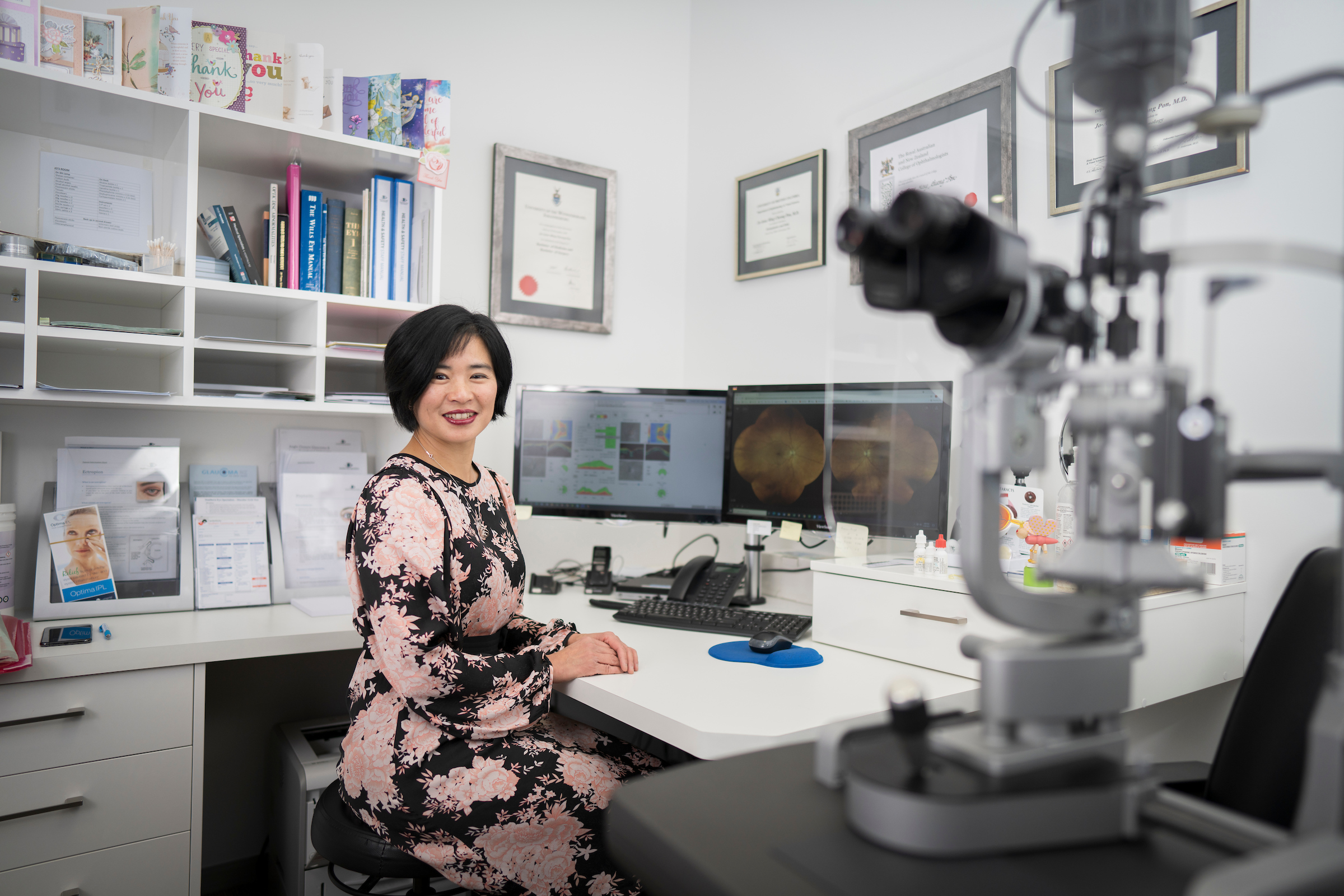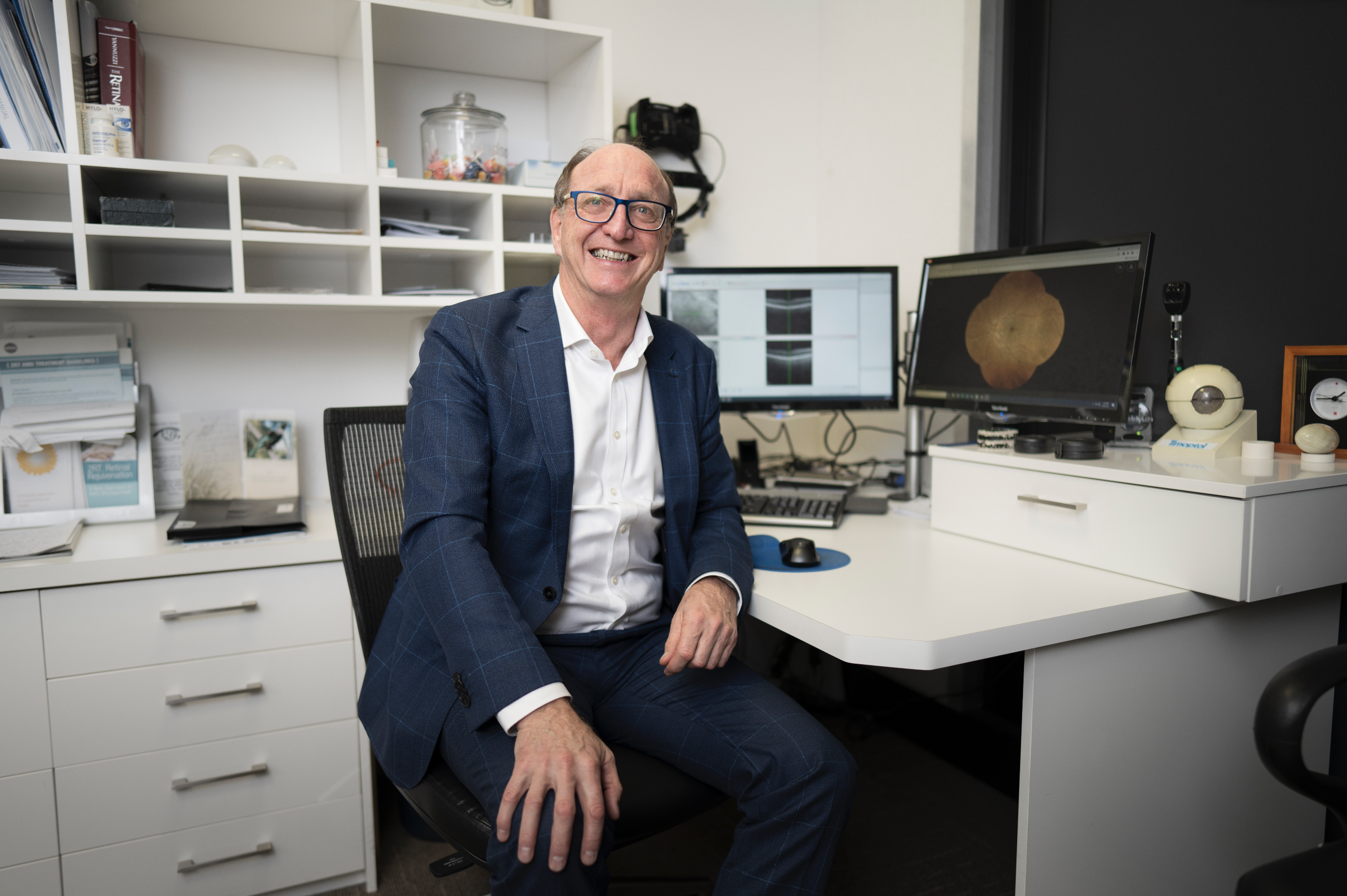Dr Genevieve Oliver
Specialist – diseases & surgery of the retina,
vitreous & macula specialist cataract surgeon
BHB, MB ChB, MOphth, PhD, FRANZCO
Dr Genevieve Oliver has spent over 20 years moving around New Zealand, Australia, and beyond to gain world-class experience and expertise as a Consultant Ophthalmologist and Vitreoretinal Surgeon.
Dr Oliver now has a prodigious skillset and extensive leadership experience. She was chair of the Women in Ophthalmology Group from 2016 to 2019 and has served on the RANZCO Council, RANZCO Diversity & Inclusion Committee and the South Australian RANZCO Branch Committee. She currently divides her time between Southern Eye Specialists and Christchurch Hospital, while serving on the New Zealand RANZCO Qualification and Education Committee.
The point of view
Be it negotiating an alpine track, growing a challenging specimen in the garden, or setting her mind to a task with more impactful consequences, Dr Genevieve Oliver is highly motivated by problem solving. It’s this motivation that first led her into medicine and, subsequently, saw her travel to remote corners of the globe before arriving back in New Zealand and Southern Eye Specialists.
It was while staring into an ophthalmoscope during her fourth year of medical school that Dr Genevieve Oliver found her calling.
“I was doing a medical rotation in a very busy clinic, and I found myself in a dark room with an ophthalmologist as she was studying patients. She handed me the instrument and told me to examine her patients. That was the epiphany for me,” she says. “It all made sense – I could simply look into the eye and observe the pathology.”
Genevieve’s medical studies began at the University of Auckland before she moved south for ophthalmology training and studied a Masters in Ophthalmology through Otago University. Growing up she had a keen awareness and respect for Fred Hollows. So, the first stop on her three-year fellowship abroad was with the Fred Hollows Foundation in Timor Leste.
The Foundation’s focus at the time was on outreach projects and capacity building, and Genevieve helped teach ophthalmology skills to local doctors.
She next travelled to India, where she extended her skills by learning manual small incision cataract surgery in Hyderabad.
“I then went on to Mechi Hospital in Nepal,” she says. “That was really interesting – working in specialised hospitals and seeing how they deliver high-quality health care on a modest budget.”
Next was a couple of years spent gaining skills in vitreoretinal surgery at Flinders Medical Centre in Adelaide and Sydney Eye Hospital, before returning to Adelaide to work as a consultant vitreoretinal surgeon and pursue a PhD. Genevieve landed back in Auckland in March 2020 on the very night of the initial lockdown.
“We can no longer be just medical experts. Instead, we must be managers, health advocates, leaders, collaborators, and excellent communicators.”
“I realized I was living on the wrong side of the ditch, so I found a job back home,” she says. “I was meant to start later in the year, but Covid expedited my plans. In the space of a week, I packed up my life in Adelaide, boarded a plane, and flew into Auckland, arriving the evening of our first lockdown.”
She then spent the next few months writing up her PhD. This focused on retinal infections that are transferred by animals, such as Toxoplasma gondii, Ebola and Dengue viruses, and how these bugs affect the eye.
“It was quite a broad PhD which exposed me to a range of research techniques,” she says. “I’ve always been interested in microbiology and infections. I love that there’s the host and there’s the bug itself. The way they interact becomes quite complex.”
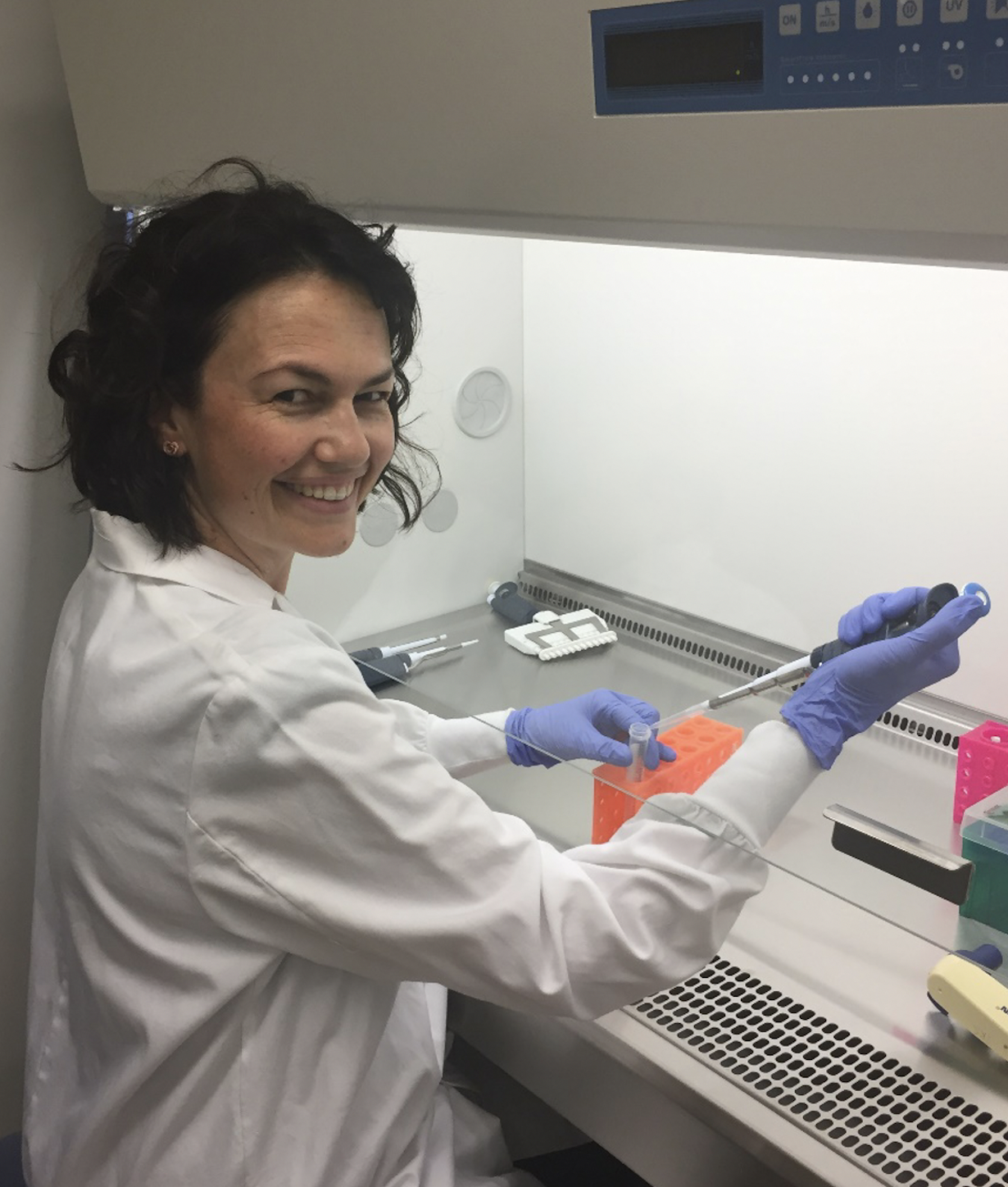
“I doubt it (a work-life balance) exists. No week or month is ever the same. I think it’s more about knowing when to take a break and what to say yes to.”
Curiosity is a common theme amongst the doctors at Southern Eye Specialists and, given her research approach and overall mindset, it’s particularly obvious when talking to Genevieve.
“Getting better at your job never ends, and I have always enjoyed climbing the learning curve,” she says. “The more we know, the more questions we have – every step you take unearths more.”
It is the ‘why’ that drives her to keep learning, in that “research is a slow burn. It’s a totally different deal to medicine.”
This aspirational drive can be problematic, and the risk of taking on too much is an ever-present one. It is perhaps why she is quick to dismiss an idealised concept of “work-life balance”.
“I doubt it exists. No week or month is ever the same. I think it’s more about knowing when to take a break and what to say yes to.”
She presented on the issue of burnout at the Royal Australian and New Zealand College of Ophthalmologists’ Christchurch branch meeting in 2021. Burnout rates have been found to be very high among those who work in medicine, with a recent study by NZ Association of Salaried Medical Specialists showing that women have higher rates of burnout than men.
“We face complex challenges in healthcare and will always be constrained by resources.”
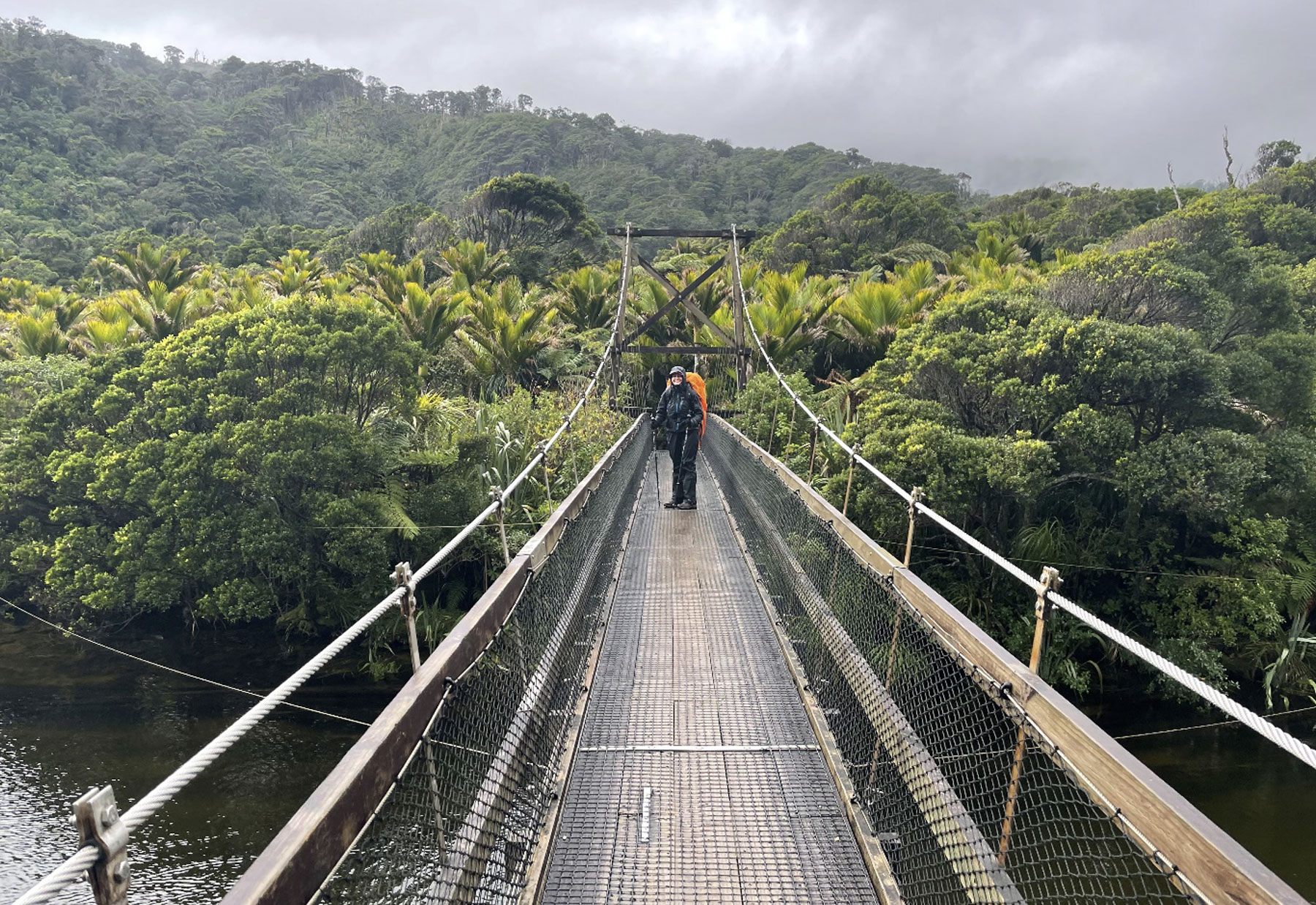
Genevieve adds that while those in her field are becoming increasingly sub-specialised, they are still expected to deliver a broad expertise in their day-to-day work. “We can no longer be just medical experts. Instead, we must be managers, health advocates, leaders, collaborators, and excellent communicators.”
Despite the high stress levels, Genevieve garners an enormous amount of pride from her everyday work.
“This is a hugely gratifying job,” she says. “When you’re improving the quality of people’s lives during your workday it is immensely rewarding.”
In her time off, Genevieve also enjoys escaping to remote parts of the country and discovering “little pockets of incredible forest and bush.”
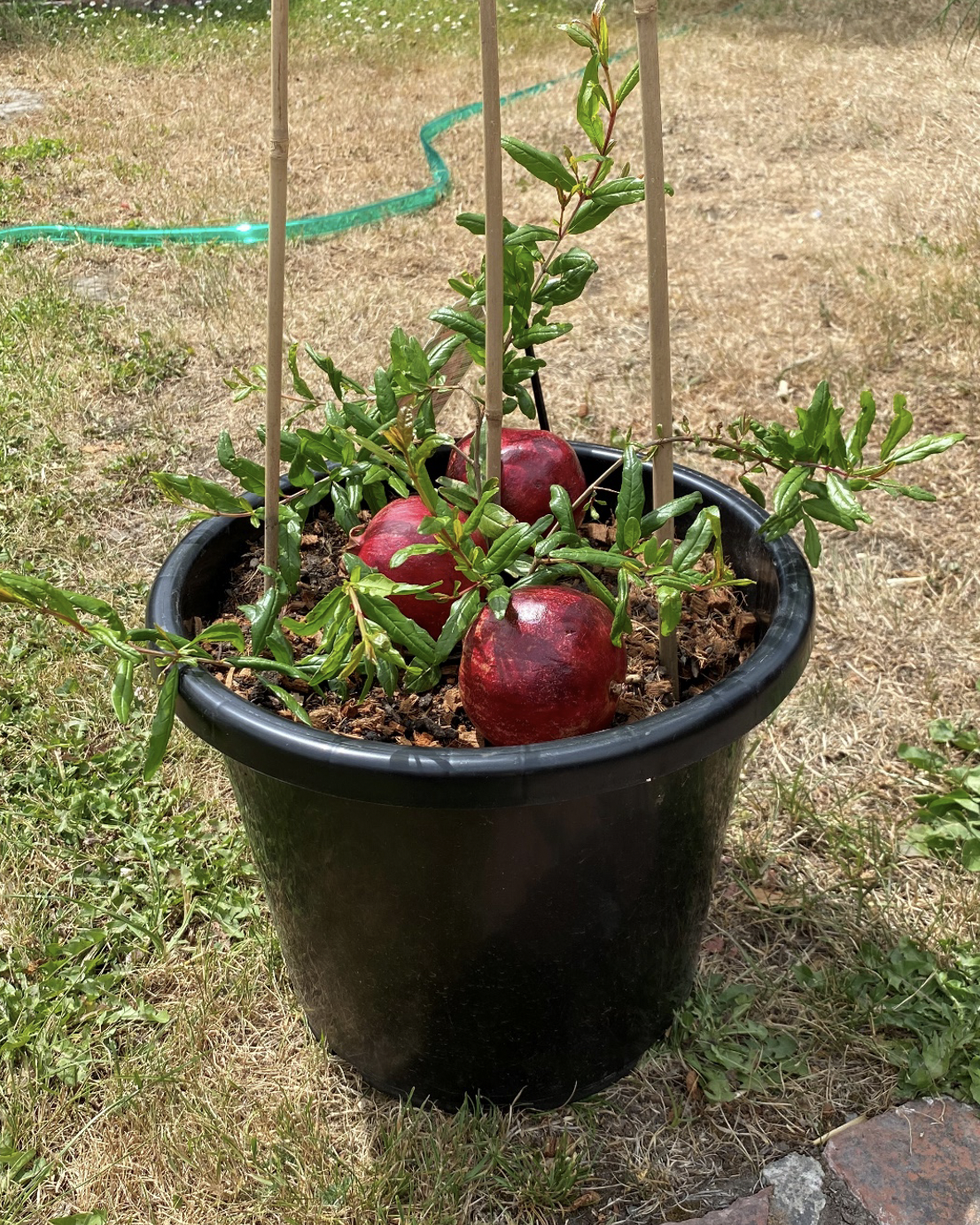
“You can go so many ways with gardening. I love that you can geek out on the science, or do it for the produce, the creativity, or the escape.”
She has no regrets about coming home, a move that coincided with her discovery of a somewhat unexpected love for small animals. Frank, “the world’s most beautiful rabbit”, was hugely popular on Instagram and in real life which, for him, ended too soon. He is now buried in the garden.
Although Frank’s memorial garden is mostly weeds at present, Genevieve finds much joy in gardening.
“You can go so many ways with gardening. I love that you can geek out on the science, or do it for the produce, the creativity, or the escape.”
She is in a competition with three Christchurch colleagues to grow a pomegranate tree that produces fruit. It started in 2020 as a joke, given that Christchurch is not exactly famous for long hot summers.
“This one will be a long game, and although it is too soon to call, I’m feeling confident…”
